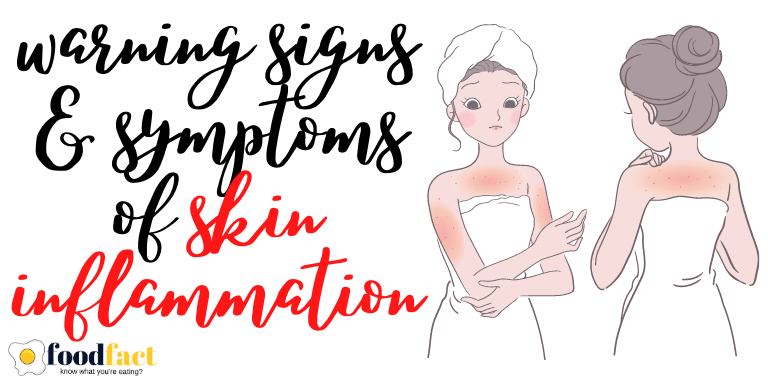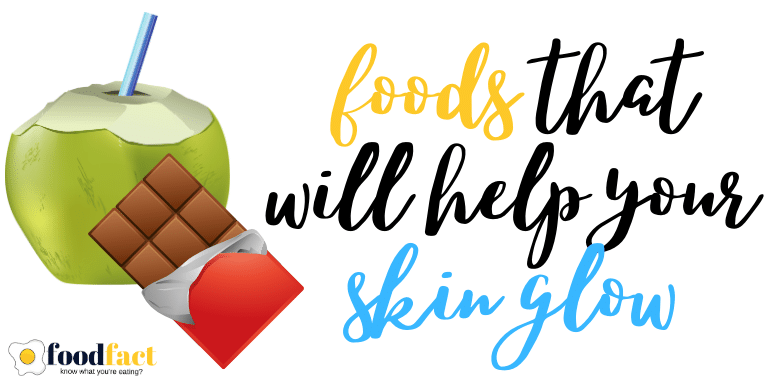Did you know that inflammation is actually your body’s defense mechanism? It’s a way of healing.
Imagine the immune system as a massive shield protecting your body.
It is responsible for maintaining your overall health.
When the body is invaded by some infectious virus, microbe or any other foreign body, this shield neutralizes the threat.
Just like any other body part, skin is also involved in immune response.
Rashes are a direct result of skin inflammation, which is also called dermatitis.
Do you know that over 16 million people in America are living with dermatitis?
This is one skin disease that deserves your attention.
In this blog, you will learn everything you need to know about skin inflammation.
Allergic reaction? Is your pimple problem a cause for concern? When should you see a doctor?
We are talking about all this and more, so keep reading.
Let’s start by discussing the symptoms of skin inflammation.
Skin Inflammation: Signs and Symptoms
Has your skin been looking red and feeling itchy lately? Maybe you are dealing with skin inflammation or dermatitis.
A typical sign would be red patches, breakouts of blisters and abscess and rashes that sting, burn or itch when touched. But that’s not true for all.
In some cases these rashes are smoother in texture like little bumps on the skin which turns red and hot.
Cracks in these rashes and bleeding is also something that you should not panic about.
People are different, so the type and intensity of inflammation you experience can be poles apart.
It can be extremely uncomfortable and irritating for some, with the skin turning red and swollen while others may have just a mild version of this symptom.
In broad terms this is what you should be looking for before concluding that you have skin inflammation symptoms: rashes, blisters, dry or cracked skin, painful or itchy skin and swelling.
Have you experienced any sort of skin problems before?
What was your effective solution? Share us in below comment section.
Let us now look at what causes this irritable skin condition.
Causes of Skin Inflammation
Atopic dermatitis or eczema Skin Inflammation
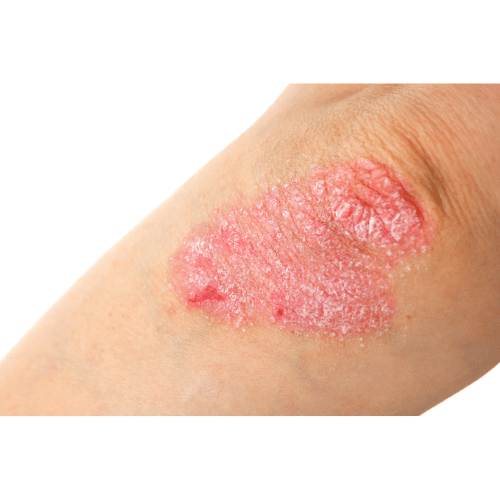
It is difficult to pinpoint the main cause of eczema.
It can be narrowed down to the combination of genetic and environmental factors.
For example if any one of the parents has this problem, the child will most likely develop it as well.
If both parents have it then the risk of developing this skin condition increases.
When it comes to environmental conditions, then the list could go on.
These include irritants like shampoos, soaps or disinfectants, allergens, microbes and even stress.
Other conditions like being allergic to certain foods and certain viruses and fungi will aggravate this condition. It’s not all bad.
You should keep a keen eye on the state of your skin to avoid this problem from becoming a chronic condition.
Contact Dermatitis Skin Inflammation
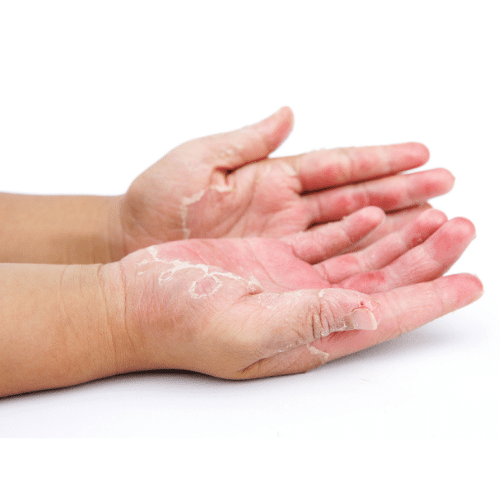
Contact dermatitis is a common occurrence.
As it may be clear from the name that it happens when you come in contact with something that may cause this problem.
Getting pricked by poison ivy or exposing your skin to some harmful chemical are some of the ways it can spread.
If sensitive skin is your problem then take extra precaution for skincare to avoid further inflammation.
Be cautious while choosing lotion and moisturiser as the right ones will lower the chances of developing skin inflammation.
Photosensitivity Skin Inflammation
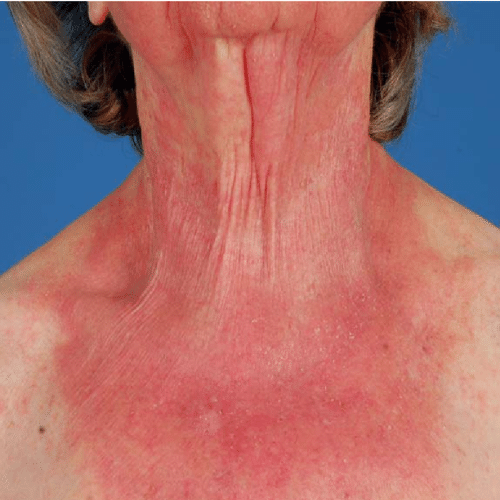
Do you feel your skin getting red and itchy while sunbathing on the beach?
Sunscreen lotion not working out?
Maybe you should start looking for solutions for skin inflammation.
Photosensitivity is basically a sun allergy.
When you step out into the sun, it triggers an immune response to allergic reactions.
This causes the skin to become itchy and develop patches, a typical occurrence in case of inflamed skin.
It is unclear why the body reacts like this.
However, the immune system recognizes some components of the sun exposed skin as a foreign entity and triggers the immune response which leaves the skin covered in rashes or tiny blisters.
This problem is fairly uncommon but can easily be triggered even by the briefest exposure to the sun.
Did you know that some forms of sun allergies are inherited?
Now that we know some potential causes of skin inflammation, let’s move on to what the diagnosis will entail.
Diagnosis:
If the itchiness and redness of the skin doesn’t go away, then it is important see a doctor, preferably a dermatologist.
After the doctor takes your medical history they will perform a physical examination of the affected region on the skin.
Since inflammation can be triggered for a plethora of reasons, the doctor will also inquire about the food you’ve been eating, some medication you may be taking or any situation where you may have come in direct contact with a particular thing.
In the process, they will examine the pattern, location and appearance of the rash.
A skin test will be the next course of action.
A small drop of a potential allergen will be injected into the skin to see how it reacts in a duration of 48 hours.
Next step will require some ruling out of different diseases which will be done through some routine blood tests.
This is done to determine the exact type of allergy that may be the root cause of the problem.
The result of this test will pave the way for your doctor to take the next step.
Another approach in determining the skin inflammation is through skin biopsy.
The diagnosis is given after a small graft of the skin is observed under a microscope.
Treatment
Recognising and avoiding the irritants and allergens that cause inflamed skin is normally the first step towards treating it.
But what if the itch doesn’t go away?
In this case, your doctor will recommend appropriate medication depending on your situation.
This can be either an antibacterial and antifungal ointment.
When applied directly on the affected area it will give some serious relief to the irritating itchiness.
If the diagnosis shows that the reaction is severe then they may also give you some oral medication.
Here are some home remedies that will help resolve itchy inflamed skin in a jiffy!
Some Home Remedies
Aloe Vera gel
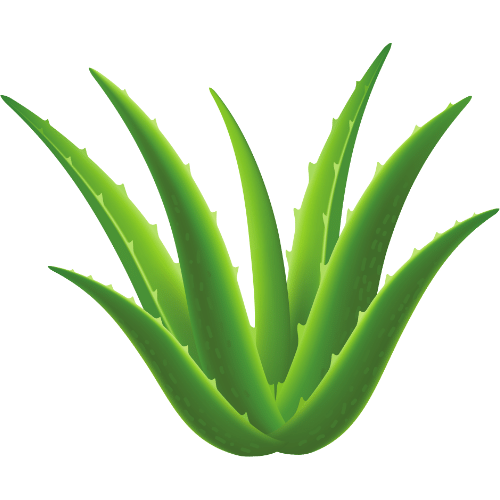
This hardy plant shot to fame because of the benefits of its gel like flesh.
Did you know drinking aloe Vera juice regularly stops the development of fine lines and wrinkles?
It is used as a natural cure to dry skin, get rid of cold sores and cure cuts and abrasions.
Above all aloe Vera is mainly known for its refreshing and cooling effect on the skin.
Scrape out the gel-like insides from the leaf of the plant and then refrigerate, before applying it around the burn area.
This prevents cell death around the wound or infected region offering instant relief!
Aloe Vera also speeds up the healing of inflammation by improving the blood flow.
Wondering how aloe Vera will change your body for good?
Here is everything you need to know about how using aloe Vera everyday will help you.
What Aloe Vera Does to your Body?
Now back to everything you need to know about skin inflammation.
Apple cider vinegar
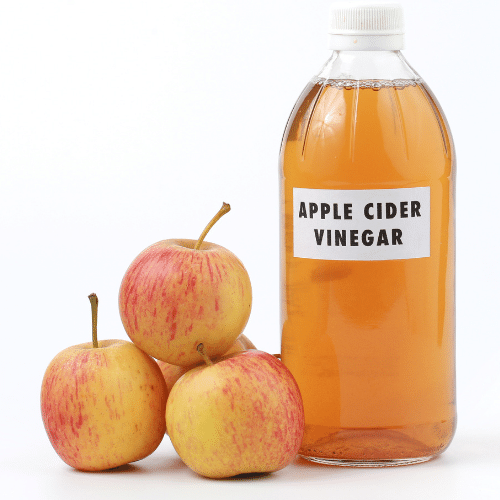
Recently termed as one of the healthiest drinks, the goodness of apple cider vinegar just keeps growing.
Resolving various skin conditions and disorders is one of them.
The components found in it also fight harmful bacterial and fungal development that may increase inflammation.
Adding a couple of drops of it in a warm bath will not just cure skin inflammation but will also act as a stress buster.
For the most effective solution, wrapping up the inflamed region in apple cider vinegar dipped cloth works best.
This can be done by simply mixing 1 cup of warm water with 1 tablespoon of ACV.
A thumb of rule is to never apply it directly on the skin.
Always dilute it and enjoy the relaxing healing effect it has on the skin.
Coconut Oil
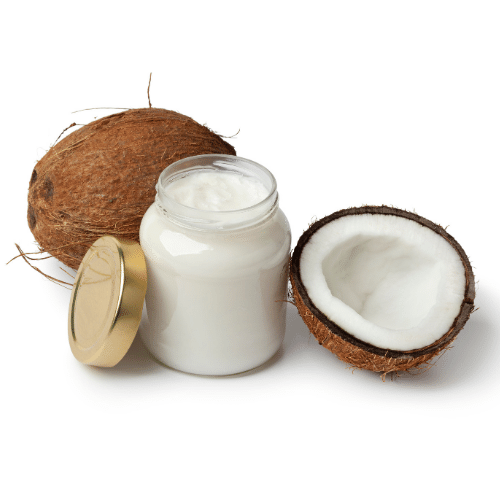
When it comes to finding solutions for skin inflammation plant based oils have been utilised through history.
Coconut oil is one such healthful alternative to regular cooking oil since it contains good cholesterol.
Host to a range of essential vitamins and minerals, when it comes to treating skin problems, it is very beneficial.
Readily available and packed with fatty acids, applying it will leave the skin moisturised for long hours.
Dry skin is a common problem faced when the skin is inflamed.
All you have to do is apply cold pressed virgin coconut oil directly on the skin several times a day.
The antioxidant properties offer therapeutic benefits required for wound healing and skin repair.
Raw Honey
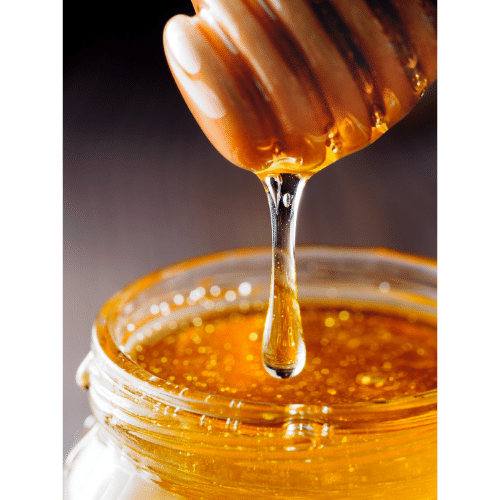
The medicinal benefits of raw honey as an anti-bacterial for the skin have always been utilised.
The antioxidants can be traced back to the powerful phytonutrient content that boosts the healing time of the skin.
You can use it anywhere, even on your hair!
Applying it in the form of a face mask will help the skin in fighting off potentially harmful infections.
The strong anti- inflammatory effects aids in solving issues related to psoriasis and acne!
You can mix it up in lemon tea and detoxify the digestive system or apply it topically on the skin.
It will not only stop inflammation but also avoid the onset of early signs of ageing.
Being an effective germ killer, raw honey boosts the immune system and nourishes the skin, inside out.
Skin inflammation needs your immediate attention, if not taken care of it can cause some serious and chronic skin disease later on in life.
It is important to nip the problem in the bud.
Taking care of your skin and keeping it in good condition is vital. To make it easier for you here is:
How you can make your skin healthier - WATCH THE BELOW VIDEO & ARTICLE
How did you resolve skin inflammation?
Was it medication or home remedy?
Share your experience in the comments below.
